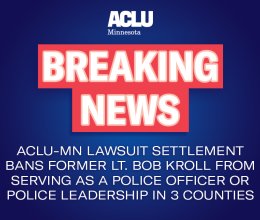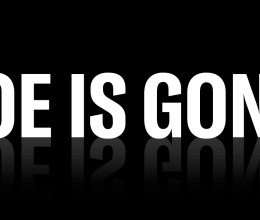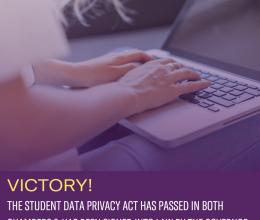Over the past couple of years, we have seen a historic level of activism. Around the nation, Black Lives Matter and other racial justice activists have taken to the nation’s parks, streets and sidewalks to demand justice for police killings of, mostly, young Black men and to demand an end to the systemic oppression of people of color and indigenous people in this country. The #NoDAPL protest at Standing Rock brought international attention to the issue of environmental racism and drew an admonishment to the United States from the United Nations Special Rapporteur on the rights of indigenous peoples. The January 21 Women’s March was likely the single largest day of protest in American history.
It’s no surprise that, amidst this historic level of activism, state legislatures around the nation have reacted by attempting to enact heavy-handed punishments designed to chill speech and silence dissent. Most of these bills are styled as measures that will protect “public safety”. But make no mistake, these bills are aimed at groups like Black Lives Matter, who are speaking up to demand racial justice.
Here in Minnesota, the Legislature considered several anti-protest bills. While one particularly troubling bill, HF 322 (allowing cities to charge protestors with police costs if they are convicted of unlawful assembly or public nuisance), has not moved forward, a measure that is included in the Omnibus Public Safety bill would increase penalties from a misdemeanor to a gross misdemeanor for the offenses of blocking traffic on freeways or airport roadways and blocking mass transit. The Omnibus Public Safety bill is poised to pass the Minnesota Legislature. We sent Governor Dayton a veto request for the bill:  Anti-Protest Provisions Veto Request
Anti-Protest Provisions Veto Request
You may be saying to yourself, “What’s the big deal? There’s no First Amendment right to block traffic so why not use our criminal laws to discourage this kind of disruption to traffic?” Although the First Amendment does not protect acts of nonviolent civil disobedience, these kinds of measures are still problematic. On their faces, these bills are aimed at what can be described as criminal conduct; however, they are specifically and explicitly aimed at conduct that is closely linked with expressive speech and conduct. Throughout our history, we have witnessed acts of civil disobedience from the Boston Tea Party, to the civil rights marchers on the Edmund Pettus Bridge, to student campus occupations protesting the Vietnam war, to the Stonewall riots, and to the Standing Rock and Black Lives Matter protests today. In the moment, those historical protests did not garner public support. But we now recognize and celebrate those events because they helped to fuel important turning points in our history. One need not be a student of history to recognize that much of the social and political progress that we have made in this country has been fueled by protest and civil disobedience. As historian Laurel Thatcher Ulrich once noted, “well-behaved women seldom make history.” By ratcheting up penalties for peaceful civil disobedience, we are sending a message that dissent and demands for justice will simply not be tolerated anymore.
Proponents of these bills argue that they are needed to protect public safety and to ensure that our highways flow smoothly. But we already have ample laws on the books to address demonstrations that get out of hand, including criminal charges. And we already tolerate any number of traffic jams that are the result, not of protest, but of inclement weather, car accidents, road construction and the rush to head to lake country on Friday afternoons. Nobody from the public safety community (police, fire, ambulance, etc.) testified in favor of this bill.
Courts that have considered similar criminal penalties have been concerned about an unjustified chilling effect on the exercise of free speech. A gross misdemeanor penalty (up to a year in jail, a $3000 fine or both) for blocking traffic ups the ante for people who are considering attendance at a protest.
The punishment simply doesn’t fit the crime. Obstruction of highways and airport roads and interfering with passenger access to a transit vehicle are actions that often result in inconvenience to travelers. But inconvenience to travelers is not on par with other things that are punished as a gross misdemeanor like Assault in the Fifth Degree (Minn. Stat. §609.224), Domestic Assault (§ 609.2242), False Imprisonment (§609.255), Criminal Sexual Conduct in the Fifth Degree (§609.3451) and Malicious Punishment of a Child (§609.377).
Sadly, the Minnesota Legislature has spent far more time talking about ways to silence people than they have talking about how to address the very serious concerns that being raised through protest and civil disobedience. Minnesota has a racial justice problem. We have some of the worst racial disparities in our criminal justice system, in our education system and in our economy. And this year, the Legislature has almost completely ignored that shameful reality in favor of silencing those who demand justice.


